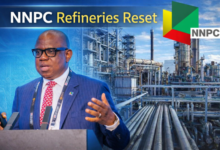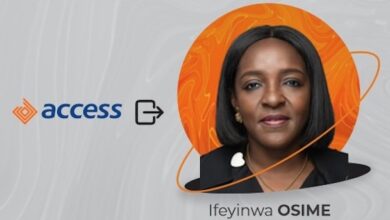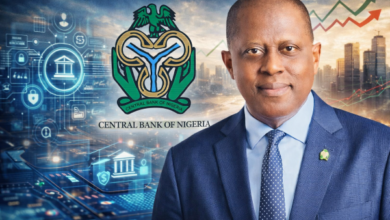WAIFEM DG Baba Musa Elected NES President: Repositioning Nigeria’s Economics for Global Impact

Nigeria’s economic community has a new leader. Dr. Baba Yusuf Musa, Director General of the West African Institute for Financial and Economic Management (WAIFEM), has been elected the 45th President of the Nigerian Economic Society (NES). His election at the close of the 66th Annual NES Conference in Abuja marks not just a change of guard but also a new chapter for the country’s oldest and most influential economics think tank.
Dr. Baba Musa succeeds Professor Adeola Adenikinju, whose tenure saw renewed engagement between the Society, government, and international partners. Now, all eyes are on Musa—an internationally acclaimed economist and sovereign debt management expert with over three decades of experience—to steer the Society into a new era of evidence-based policy influence, youth mentorship, and research-driven innovation.
Why Musa’s Election Matters
For Nigeria, where economic decision-making often struggles with weak data, short-term politics, and inconsistent policy frameworks, the Nigerian Economic Society plays a critical role as the conscience of fiscal and development strategy. Past NES presidents such as Professor Ojetunji Aboyade and Dr. Pius Okigbo left indelible marks on national planning.
Dr. Musa’s emergence signals continuity with this intellectual tradition but also a pivot to modern challenges—digital economies, climate finance, Africa’s debt sustainability, and the youth bulge demanding jobs and opportunities. His tenure comes at a time when Nigeria faces sluggish growth, inflationary pressures, and rising debt service costs, while also trying to unlock the promise of its demographic dividend.
A Four-Pillar Agenda

In his acceptance speech, Dr. Musa laid out an ambitious strategic vision anchored on four core pillars:
- Reclaiming NES’s Voice – Evidence-Based Advocacy
- A new Policy Advocacy and Engagement Committee will bridge academic research with policymaking.
- Quarterly policy briefs and state-level dialogues will ensure NES expertise influences both federal and subnational reforms.
- A new Policy Advocacy and Engagement Committee will bridge academic research with policymaking.
- Investing in Tomorrow – Youth and Capacity Building
- The “NextGen Economists Programme,” a National Economic Debating Championship, and a Digital Learning Hub will make NES a launchpad for young talent.
- The “NextGen Economists Programme,” a National Economic Debating Championship, and a Digital Learning Hub will make NES a launchpad for young talent.
- The Data Revolution – Driving Research and Innovation
- Plans include a National Economic Data Portal, annual research grants, and a revitalised Nigeria Journal of Economic and Social Studies.
- Plans include a National Economic Data Portal, annual research grants, and a revitalised Nigeria Journal of Economic and Social Studies.
- Fostering Partnerships and Collaboration
- Engagement with the private sector, international development partners, and the media will amplify NES impact.
- Completing the NES headquarters building will serve as both a symbolic and functional centre for national economic dialogue.
- Engagement with the private sector, international development partners, and the media will amplify NES impact.
Building the Next Generation of Economic Leaders
Dr. Musa stressed that Nigeria must train and empower a pipeline of economists equipped with digital, analytical, and policy skills. With over 65% of Nigeria’s population under 30, youth-focused initiatives are not just symbolic—they are critical to Nigeria’s economic survival.
He pledged to democratise access to economic knowledge by engaging the media to report financial and economic issues accurately, ensuring that citizens, not just policymakers, can make informed decisions.
What This Means for Nigeria’s Political Economy
The election of Baba Musa comes at a turning point. Nigeria is pushing for a $1 trillion economy by 2030, yet macroeconomic imbalances, forex volatility, and governance gaps persist. A stronger NES, equipped with data-driven advocacy and global networks, could become the much-needed bridge between Nigeria’s economic ambitions and the practical roadmaps to get there.
By aligning with global best practice while staying rooted in Nigeria’s realities, Dr. Musa’s NES presidency may help shift the country’s economic discourse from reactive to proactive, from rhetoric to evidence, and from short-term fixes to long-term national strategy.












